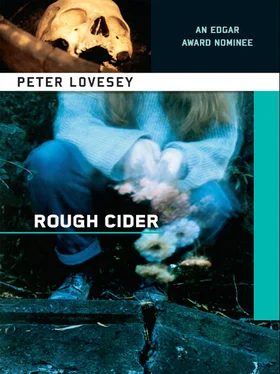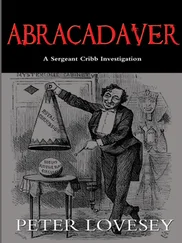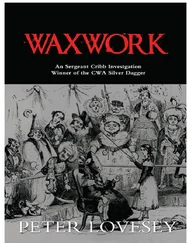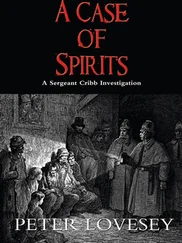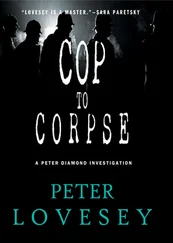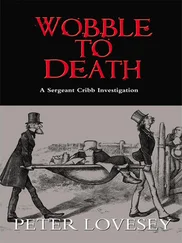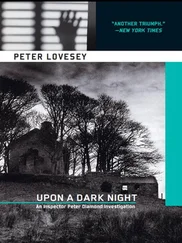Peter Lovesey - Rough Cider
Здесь есть возможность читать онлайн «Peter Lovesey - Rough Cider» весь текст электронной книги совершенно бесплатно (целиком полную версию без сокращений). В некоторых случаях можно слушать аудио, скачать через торрент в формате fb2 и присутствует краткое содержание. Жанр: Криминальный детектив, на английском языке. Описание произведения, (предисловие) а так же отзывы посетителей доступны на портале библиотеки ЛибКат.
- Название:Rough Cider
- Автор:
- Жанр:
- Год:неизвестен
- ISBN:нет данных
- Рейтинг книги:4 / 5. Голосов: 1
-
Избранное:Добавить в избранное
- Отзывы:
-
Ваша оценка:
- 80
- 1
- 2
- 3
- 4
- 5
Rough Cider: краткое содержание, описание и аннотация
Предлагаем к чтению аннотацию, описание, краткое содержание или предисловие (зависит от того, что написал сам автор книги «Rough Cider»). Если вы не нашли необходимую информацию о книге — напишите в комментариях, мы постараемся отыскать её.
Rough Cider — читать онлайн бесплатно полную книгу (весь текст) целиком
Ниже представлен текст книги, разбитый по страницам. Система сохранения места последней прочитанной страницы, позволяет с удобством читать онлайн бесплатно книгу «Rough Cider», без необходимости каждый раз заново искать на чём Вы остановились. Поставьте закладку, и сможете в любой момент перейти на страницу, на которой закончили чтение.
Интервал:
Закладка:
SEVEN
The rest is on public record, so if you’re familiar with the relevant volume of Notable English Trials, or James Harold’s The Christian Gifford Murder, why not skip this chapter? For completeness I’m going to bring the story up to date, but most of what follows will be secondhand, picked out from the evidence of police and other witnesses. My part in it was mercifully short.
I’ll continue as before, reporting the facts as I told them that night to Alice. She’d kept her promise and allowed me to get this far without interruption, except a muttered “Oh, my God!” when I came to Barbara’s suicide, which hadn’t been mentioned in the press clippings she’d found among her mother’s papers.
One evening in October 1944, almost a year after the tragic events I’ve been describing, a man in a public house in Frome, the Shorn Ram, ordered a pint of local cider, a drink strongly preferred in wartime to the watered-down stuff that masqueraded as beer. People didn’t object to drinking from jam jars in those days of crockery shortages, but they were still choosy about what went into the jam jars.
So when the customer complained that the cider was “ropy,” it was a serious matter. The publican had just put a new barrel on, a large one, a hogshead, from Lockwood, a reliable cider maker. He drew off a little for himself and sampled it.
It’s worth pausing to reflect that if the publican had been prepared to admit right away that the cider was off, Duke Donovan might never have been brought to trial. Yet these were days of austerity when you could be fined for throwing bread to the birds. It was against the war effort to throw anything away if there was the remotest possibility that it might be consumed. So the publican sipped the cider and agreed that it tasted more bitter than the previous barrel but adjudged it palatable. He carried on serving it for the rest of the week. Scores of customers imbibed it, but few came back for a second glass.
At the weekend, two of the Shorn Ram regulars went down with food poisoning. The cider was mentioned as a possible source of infection. Ugly rumors circulated of local cider makers who believed in leaving the bunghole of the barrel open after fermentation. It was said that if you looked closely at the sticky surface on the top, you’d see the footprints of rats. They approached but never returned from the open hole.
A Ministry of Health inspector arrived at the pub on Monday and took a sample of the cider for analysis. It was indeed “ropy”; not from the taste of dead rat but from contamination by some form of metal.
The hogshead was opened. When they removed the lid and poured the rest of the liquid down the drain in the yard behind the pub, everyone was expecting to find a metal implement in the lees that had collected at the bottom. Perhaps some careless farmhand had dropped a hand tool in there when they were fastening the lid.
What they found was a human skull with a bullet hole through it.
The process of identifying the victim is a story that has been graphically told elsewhere. Personally, I feel like wearing rubber gloves when I handle books about forensic science. Trust me: I’ll rush you through the really gruesome bits. Suffice to say that the skull was taken to the forensic laboratory at Bristol, to be examined by Dr. Frank Atcliffe, a rising young pathologist who was himself killed tragically the following year in a civil airline crash.
There was precious little to go on. The action of the cider had destroyed all the skin, flesh, and brain tissue. There were no traces of hair remaining. Although the lees were sifted minutely, nothing else of significance was found in the barrel. Care for a glass of water? Or cider?
Dr. Atcliffe found that the skull was that of a man aged between eighteen and twenty-five. Mention sex to a pathologist and he thinks of mastoid processes and orbital ridges. And age is the ossification of the epiphyses.
Some newspapers mistakenly reported that the bullet had been the metallic agent that had caused the cider to go ropy. In fact, the bullet wasn’t found in the cask. It had passed through the skull, leaving a clear exit wound. So what do you think caused the metal contamination?
A couple of dental fillings.
As Dr. Atcliffe later mentioned, had the victim possessed a perfect set of teeth, the cider would have been unimpaired. The cask and what was left at the bottom would have been returned to Gifford Farm for reuse.
Take a deep breath and let’s deal with the bullet holes. The one on the left side, about one and a half inches above the aural orifice, was the entrance wound. The bullet had smashed through the right cheekbone on exit, just behind the eye. Dr. Atcliffe estimated from the size of the holes that the caliber was.45. It had been fired not less than a yard from the victim and not closer than eighteen inches. It wasn’t possible to estimate the date of death.
The prospect of more grisly discoveries was widely discussed. Two more hogshead casks were opened and examined at the Shorn Ram, as well as a further seventeen supplied by Gifford Farm to public houses in Frome, Shep-ton Mallet, and surrounding villages. The publicans made no objection; there had been a marked falling-off in their sales of cider. But the casks contained nothing more sinister than bones of sheep. You and I might flinch at mutton-fed cider, but they didn’t in Somerset in 1944.
The murder investigation was headed by Superintendent Judd of the Somerset Police, a God-fearing Glastonbury man famed for his lay preaching. People packed the chapel each first Sunday in Lent to hear him rattle the tin roof with his famous sermon on temperance. He despised the demon drink. He started his inquiry at the place he named with sinister emphasis “the source/’ Gifford Farm.
They said in the pubs that George Lockwood would be hanged, drawn, and quartered before the case ever came to court. Things couldn’t have looked worse for him. The cask had his name on it. He’d supplied it in August. He’d personally hammered down the top the previous November. There were no indications that anyone had tampered with it.
George Lockwood was unable to recall anyone behaving suspiciously in the three weeks of cider making. Nor was he able to throw any light on the victim’s identity. He listed his farmhands and helpers for Superintendent Judd. Each one was traced and interviewed, with three exceptions: Barbara, Duke, and Harry. Barbara, of course, was dead. Both GIs had left England in June 1944, to take part in the invasion of Europe.
When Judd raised the question of Barbara’s suicide, George Lockwood admitted that it had happened on November 30, two days after the cider making had finished and the last cask was closed, but he could see no possible connection with what had happened. The coroner at the inquest had established that Barbara had taken her own life while the balance of her mind was disturbed. Judd didn’t press any further at that stage but ordered one of his senior men to take another look at the circumstances surrounding Barbara’s death.
In the meantime a check was made of missing persons, particularly young men aged between eighteen and twenty-five, in the Frome and Shepton Mallet districts. This wasn’t easy. Some had volunteered for military service without informing their families; others had gone missing as deserters; and some had been killed visiting places like Bristol where there’d been massive bombing action.
But a list was compiled, and within days the victim was identified. Several lines of inquiry converged in a most convincing way.
The inspector who reopened the file in Barbara’s death learned from the postmortem report that she had been two months’ pregnant. Her sense of shame about the pregnancy, which she hadn’t mentioned to her family, was held to be the main reason why she took her life. The identity of the man responsible wasn’t established, and it wasn’t a function of the inquest to name anyone. The family had been unable or unwilling to comment, but there were strong rumors locally that the man was Cliff Morton. It was said that he was obsessed by Barbara and pestered her frequently. On one occasion in September during the apple gathering, he’d tried to force his attentions on her and been ordered off the farm by George Lockwood.
Читать дальшеИнтервал:
Закладка:
Похожие книги на «Rough Cider»
Представляем Вашему вниманию похожие книги на «Rough Cider» списком для выбора. Мы отобрали схожую по названию и смыслу литературу в надежде предоставить читателям больше вариантов отыскать новые, интересные, ещё непрочитанные произведения.
Обсуждение, отзывы о книге «Rough Cider» и просто собственные мнения читателей. Оставьте ваши комментарии, напишите, что Вы думаете о произведении, его смысле или главных героях. Укажите что конкретно понравилось, а что нет, и почему Вы так считаете.
